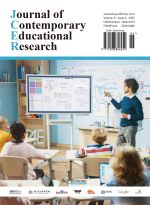Abstract
This study examines how generative artificial intelligence (AI) reshapes creative identity in design education. Drawing on post-humanist and network-based theories, it frames AI as a cognitive collaborator in ideation and authorship. Mixed-methods data reveal student anxiety and stylistic confusion, contrasted with designers’ adaptive strategies. The AI–Cognition–Identity framework supports curricula that promote reflective, ethical, and epistemically informed AI-integrated pedagogy.
References
Nelson HG, Stolterman E, 2012, The Design Way: Intentional Change in an Unpredictable World (2nd ed.), MIT Press, Cambridge, Massachusetts.
Haraway DJ, 1991, Simians, Cyborgs, and Women: The Reinvention of Nature, Routledge, New York.
Hayles NK, 1999, How We Became Posthuman: Virtual Bodies in Cybernetics, Literature, and Informatics, University of Chicago Press, Chicago.
Latour B, 2005, Reassembling the Social: An Introduction to Actor-Network-Theory, Oxford University Press, Oxford.
Zhou L, Park M, Hernandez C, 2022, Rethinking Creativity in the Age of AI: Generative Systems as Cognitive Collaborators in Design Education. AI & Society, 37(4): 1195–1210.
Schonau-Fog H, Jensen LN, Sorensen JK, 2020, Human–AI Co-Creation in Game Development Education: Challenges and Opportunities, Proceedings of the International Conference on the Foundations of Digital Games, 1–4.
Hollan J, Hutchins E, Kirsh D, 2000, Distributed Cognition: Toward a New Foundation for Human–Computer Interaction Research. ACM Transactions on Computer–Human Interaction, 7(2): 174–196.
Candy L, Edmonds E, 2018, Practice-Based Research in the Creative Arts: Foundations and Futures from the Front Line. Leonardo, 51(1): 63–69.
Lu Y, Chan J, 2021, Navigating Ethics in Human–AI Co-Creation: A Study of Design Students’ Evolving Awareness. Design and Culture, 13(3): 345–362.
Braun V, Clarke V, 2006, Using Thematic Analysis in Psychology. Qualitative Research in Psychology, 3(2): 77–101.
Davis FD, 1989, Perceived Usefulness, Perceived Ease of Use, and User Acceptance of Information Technology. MIS Quarterly, 13(3): 319–340.
Manovich L, 2013, Software Takes Command, Bloomsbury Publishing, London.
Freire P, 1970, Pedagogy of the Oppressed, Herder and Herder, Freiburg.
